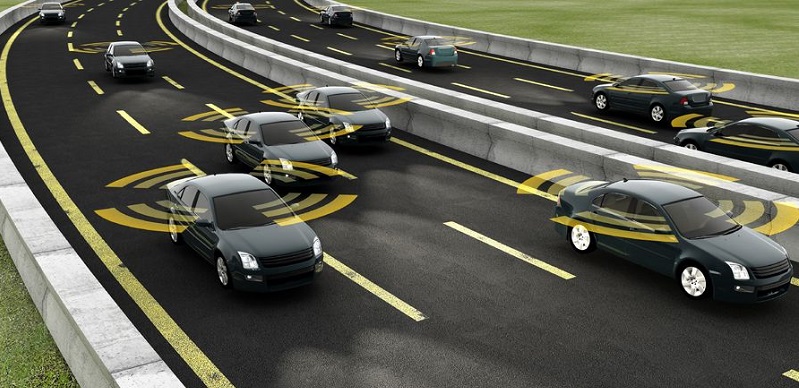CDOT plans to build roadside radio transmitters as part of a smart road system that would communicate with vehicles and allow the agency to monitor traffic volume and flow, road conditions, and accidents on Colorado highways.
Colorado Assembly Bill Would Let Agency Connect
A few years from now, your car may have a lot to say about your driving: how fast you’re driving, where you are, and where you’re going. A bill going before lawmakers would open the door for the Colorado Department of Transportation (CDOT) to gather information from car electronics to help the agency manage traffic flow.
If approved by Colorado’s General Assembly, HB18-1188 will let CDOT sync with your car or truck as it moves along equipped highways, reported Jason Burger of Grand Junction’s KJCT Channel 7 news. The project belongs to the state agency’s RoadX program, which is dedicated to making driving conditions on the state’s roadways better. It is expected to launch sometime in 2018.
If approved, the bill would prevent state agencies from collecting personally identifying information except where necessary to administer HOV and toll lanes, according to Denver’s KMGH Channel 7’s Robert Garrison. CDOT plans to build roadside radio transmitters as part of a smart road system that would communicate with vehicles and allow the agency to monitor traffic volume and flow, road conditions, and accidents on Colorado highways.
Making Interstate 70 Smarter Than the Average Road
CDOT already has big plans to turn the I-70 corridor into a so-called smart road. The “Smart-70” project will create one of the first connected vehicle environments in the United States, preparing Colorado to have the safest, most-connected road system in the country, the agency says.
By connecting with equipped cars and trucks, the systems will also provide real-time safety and directional data to drivers so they can make better decisions when traveling through the mountains. The project anticipates that the system will evolve as new technologies and data sources emerge, eventually giving navigational boosts to self-driving cars.
Drivers in the connected driving environment will enjoy more reliable trips and travel times, better safety and mobility through accident prevention, and reduced stop-and-go traffic.
You can see a video explaining the new system on YouTube.
Unanswered Concerns about Driver Privacy, Safety
Ballard Spahr’s Privacy & Data Security Group partner and podcaster Phil Yannella pointed to several concerns the public and lawmakers should think about when considering connected roadway technology and rules, Thomson Reuter’s news service reported. What if the wrong people are listening? And what will your car be telling them? Several years ago, before the idea of self-driving vehicles became commonplace, hackers were able to access vehicles remotely and control limited functions. There have been no reports so far of malicious hackers accessing connected cars, but it is theoretically possible, Yannella said.
The risks also involve scope and depth. Producing so many connected cars with connections to other cars, traffic controllers, and the manufacturers creates exponentially more access points for hackers. And the effect could spread outward. A computer bug that affects one connected car might easily cause a car accident that affects other cars on the same connected highway.
State governments and Washington, D.C. lawmakers have a long road ahead of them to create the technical standards and regulations that will safeguard against the issues, Yannella said.
While speaking with KJCT Channel 7, CDOT Chief of Advanced Mobility Amy Ford answered concerns about keeping driver’s personal information secure, saying:
“The information is absolutely 100 percent private, so that’s an important thing to note. The data sets that are being shared are anonymous, the encryption keys change regularly from a cybersecurity perspective so it basically says, ‘A vehicle is in this location.'”

